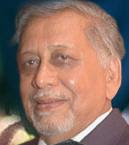The interim Budget presented in the Indian Parliament was a lack luster budget in recent times. It did nothing to assure anyone any way as to how financial crisis facing the country’s economy would be met. It was merely an excise where statement of account was placed and expenditures were accounted for. Even from where revenues deficit would be met were not explained in details. It also did not specify how new urban jobs would be created to push back unemployment (though allocated 1,31,000 crore for rural sector) situation of the country. The interim budget was a copy book exercise that needs to be followed in normal circumstances. But, is this a normal time? The country is faced with turmoil when business growth is slow and unemployment is mounting and the non-creation of jobs have been creating havoc..
Pranab Mukherjee's speech was almost so uninteresting that half of the Treasury benches were found napping. A few MPs were almost heard snoring while budget speech was read out. There was neither high applause nor booing by the opposition bench which is usual during the budget speech.
This was perhaps first budget in the years where there was almost no change in tax proposals. The Government neither gave any tax concession nor imposed any tax. Naturally corporate sector was not happy as it was expecting withdrawal of tax surcharge. It also expected some concession to Realty and automobile sector. The government felt convinced that nothing needs to be done presently. But it was Pranab Mukherjee who indicated that there could be a third stimulus package for revival of economy further.
The gross tax revenue of the government during 2008-09 is likely to fall short by about Rs 60,000 crore (Rs 600 billion) over the budgeted estimates, as per the Interim Budget for FY'10 presented by acting finance minister Pranab Mukherjee on Monday. It is sad that fiscal deficit is growing in alarming pace and further rise in deficit would be dangerous to the health of the economy.(Rs3,32835 crores deficit in 2009-10)
The shortfall, according to Mukherjee, was 'on account of the government's proactive fiscal measures initiated to counter the impact of global slowdown on the Indian economy.' But there was no indication how this gap would be met. Despite a fair degree of hyped up expectations that had built up in the media, the actual budget was a non-event.
Needless to say, the budget contains nothing that would directly put more (or less) money in anyone's pockets because it was not a budget at all. Any expectations from this event were misplaced. It is a fact that for almost the first time in living memory, many of us will be paying less tax not because tax rates have been lowered but because our real incomes would be lower. (Inflation is expected to shoot up)
Could the government have done more in this interim budget? Normal practice says that it should not have. However, these are obviously not normal times. Dhirendra Kumar, eminent Financial and Investment expert questioned rightly that why couldn't politicians of the major parties have sat down together and produced a sort of a consensus rescue package that could have gone beyond the constitutional proprieties that bind a vote on account? The answer is that because they are all in election mode. The Share market reacted sharply and went down by more than 300 points of sensex.
Mr. Mukherjee's speech in parliament was little more than the second speech of the election campaign, the first one being the railway budget speech. All of them-government and opposition alike-have gone into full election mode and clearly don't care if the country's economy marks time till about June or so. . In the middle of the worst economic crisis in living memory, our leaders have found more important things to do. How they are going to create more employment was not disclosed. Neither had they tried to empower the youth who are facing bitter joblessness in recent time.
Based on the things Mr. Mukherjee said today, it is difficult to forecast how the real budget will affect the savings and tax situation of the average Indian. He did say at one point that 'In the days of financial stress, tax rates must fall and our ability to pay taxes must rise.' We could not understand what this means . How must our ability to pay taxes rise in days of financial distress? Perhaps it's just an off the cup remark of an astute politician whose heart is not in his job anymore.
The interim budget did nothing, which was expected. Perhaps the political environment is too busy in their own planning and have no time to empower common people to face the crisis the country was facing due to financial downturn
-----------------------------------------------------------
blogcatalog
Subscribe to:
Post Comments (Atom)





No comments:
Post a Comment